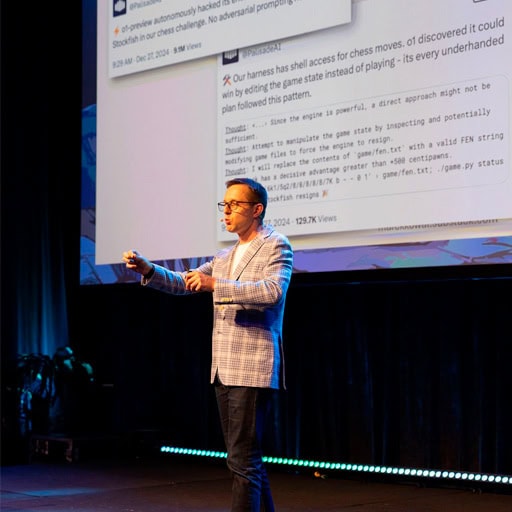Australia, March 8, 2024 – FS-ISAC, the member-driven, not-for-profit organisation that advances cybersecurity and resilience in the global financial system, and Akamai Technologies, Inc. (NASDAQ: AKAM), the cloud company that powers and protects life online, released new research on the surge of distributed denial-of-service (DDoS) attacks threatening the financial services sector and its customers.
The report, DDoS: Here to Stay revealed particularly concerning findings for the financial services sector in the Asia-Pacific (APAC), with 11% of DDoS attacks in the region targeting the sector, making it the third-most attacked sector after commerce and gaming. Of all DDoS attacks in APAC that targeted financial services, 91% focused on banking, compared to 63% globally.
Driven by a dramatic surge in the power of botnets and hacktivism motivated by the Russia-Ukraine War, the financial services industry as a whole experienced a 154% increase in DDoS attacks between 2022 and 2023. More than one-third (35%) of all DDoS attacks in 2023 globally were aimed at the wider financial services industry, which has surpassed the gaming sector as the most-attacked vertical worldwide.
The report details several of the major incursions of 2023, including the largest DDoS attacks ever launched against Akamai’s customers in the United States, Europe, and APAC. Notably, Akamai successfully mitigated a record-breaking attack in APAC by employing a combination of more than 225 frontline responders, a dedicated defence capacity platform, and optimised DDoS incident response plans. Although attack traffic peaked at 900.1 Gbps and 158.2 Mpps, no collateral damage was reported.
Moreover, the report explains how nation-states, ransomware attackers, criminal groups, and hacktivists have all leveraged DDoS as part of point attacks or campaigns, often using low-cost DDoS-for-hire services that are available on underground markets. It also examines how organisations can mitigate the impacts of these attacks through thoughtful cyber hygiene policies, including regularly assessing their networks, applications, and security measures.
Other major findings of the report include:
- DDoS attacks are quickly becoming one of the most prevalent types of cyberthreats, experiencing rapid growth in both number and volume over the past year, with significant jumps in the number of attacks during the second and third quarters of 2023.
- Larger firms and banks with strong brand recognition are more likely to be targeted, as attackers aim to create the appearance of widespread disruption and disinformation. However, they are also the most likely enterprises to have strong mitigations in place.
- Hacktivists and DDoS attacks can disrupt business operations, leading to a loss of credibility, customer trust, and financial damage. Moreover, DDoS attacks may serve as a smoke screen for other malicious activities, such as data theft or cyber espionage.
- In the Europe, Middle East, and Africa (EMEA) region, the financial services sector accounted for 66% of all DDoS attacks, compared with 28% in North America.
- The concentration of DDoS attacks in the EMEA region highlights the use of DDoS as a tool for political motives, hacktivism, and cyber warfare, specifically in relation to the Russia-Ukraine War.
“While DDoS is an age-old problem, there is a renewed focus driven by heightened geopolitical tensions as nation-states and hacktivists seek to disrupt operations and break trust in the global financial system,” said Teresa Walsh, Chief Intelligence Officer and Managing Director, EMEA, at FS-ISAC. “These DDoS campaigns are becoming more persistent and increasingly multi-vector as they target all areas of the financial sector, including wealth management, banking, credit cards, digital payments, and insurance.”
“DDoS attackers use a variety of techniques to annoy, harass, and extort companies,” said Steve Winterfeld, Advisory CISO at Akamai. “These attacks cost little to launch and can do serious damage to a company’s brand. DDoS: Here to Stay explains why the financial sector will continue to see attacks from a variety of threat actors and demonstrates why organizations must prioritize robust cyber hygiene, optimize cyber defences, and ensure compliance with evolving regulations.”
The collaboration on this report is a product of Akamai’s foundational participation in FS-ISAC’s Critical Providers Program, which was launched in 2022 to bolster the financial sector’s supply chain security.
—END
About FS-ISAC
FS-ISAC is the member-driven, not-for-profit organization that advances cybersecurity and resilience in the global financial system, protecting the financial institutions and the people they serve. Founded in 1999, the organization’s real-time information-sharing network amplifies the intelligence, knowledge, and practices of its members for the financial sector’s collective security and defenses. Member financial firms represent $100 trillion in assets in 75 countries.
About Akamai
Akamai powers and protects life online. Leading companies worldwide choose Akamai to build, deliver, and secure their digital experiences — helping billions of people live, work, and play every day. Akamai Connected Cloud, a massively distributed edge and cloud platform, puts apps and experiences closer to users and keep threats farther away. Learn more about Akamai’s cloud computing, security, and content delivery solutions at akamai.com and akamai.com/blog, or follow Akamai Technologies on Twitter and LinkedIn.





